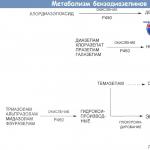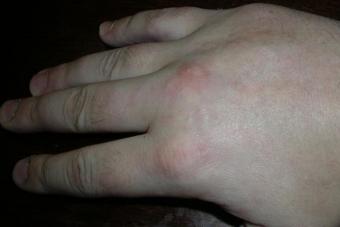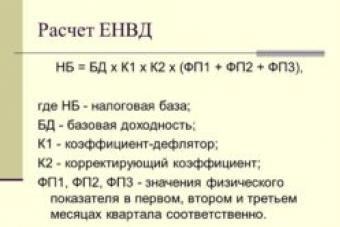Now many people think that fasting and sports are not very compatible things. In addition, many people say that you should not fast during active sports. After all, during these periods there are very high energy costs, and all the time it is necessary to restore proteins. Sometimes this view post and sport occurs very often among coaches, athletes. Some manage to combine fasting and sports: they work out in rocking chairs and at the same time refuse to fast only from different types of meat.
It is worth noting that in the ancient church during eating only 1 time in the evening. And it was mostly plant based food without the use of bread. Some athletes are now trying to combine post and sport. Many of them note that at the same time the body is able to discover its new possibilities. For example, playing sports during fasting in the first week can be very difficult. After all, the forces practically evaporate due to the lack of the usual food, elements. But after a week, some dexterity in movements may appear.
Over time, new forces appear, reset excess weight, there is an unprecedented speed relative to movements. Thus, fasting and sport complement each other perfectly. In general, amateur athletes can and should combine fasting and sports. They can fast with all possible severity. This, by the way, both health and the body itself, the body can open up its new possibilities.
It is very important for athletes to understand that you need to try to diversify your diet at a time when it is combined post and sport. It should be noted that many Christians prefer to fast very strictly during the first week of fasting. Sports fans can also follow this custom. Generally, this post implies that it is necessary to exclude dairy, meat, fish food, eggs from the diets. It is better, of course, to coordinate your measure of fasting with confessors, and also take into account the state of your health.
V post and sport will be very effective if you diversify your diet with all kinds of healthy cereals and soups. In you can cook porridge not with milk, but, for example, with water. You can fill them not with oil, but with some kind of sauce. You can also make a sweet version of the sauce (based on jelly, jam, berries, nuts, dried fruits, honey, cream, cocoa). If you want something savory, then you can cook mushroom, vegetable sauce. You can also do different variations with delicious spices. In general, athletes and other people can greatly diversify the main components of cereals (rice, pearl barley, semolina, oatmeal, buckwheat, cereal, etc.).
As for soups, there are also very good ones.
But, as you know, fasting is not shown to everyone. So, the canonical books themselves say that it is actually forbidden for pregnant women and sick people to fast. It is worth beingware of young fragile organisms and the elderly.
Fasting is contraindicated in any disease. That is why it is said that old people do not need to fast. old age- it's always one or the other chronic diseases. And in this case, fasting - as a departure from traditional nutrition - causes a relapse of these diseases, a deterioration in the condition. It negatively affects digestion, liver, kidneys. Fasting is also contraindicated for children. It is a growing organism that needs constant nourishment. Its absence can lead to a delay in the development of the musculoskeletal system and other problems of growth and development.
But here is the paradox: fasting is not always shown to perfectly healthy young people. In particular, when we are talking about constant stress big city and severe physical exertion.
Even if we are talking about completely healthy people, without chronic diseases, without infections like the flu, anyway, during fasting, heavy physical activity, in particular in gym, is contraindicated. During the fast, there are completely hungry days, there are days of dry eating, and activities on these days exhaust the body, can cause problems. of cardio-vascular system, homeostasis. Indeed, in the classroom, protein is consumed, which we cannot replenish with meager lean food. And in general, the diet of an athlete simply must be varied due to the peculiarities of the functioning of his body, otherwise all the hidden and sluggish negative processes in the body become aggravated.
What can you advise those believers who still want to fast, but not give up their regular classes?
If you follow the fast with moderate zeal, often eat seafood, for example, then classes can be continued. But it must be borne in mind that you need to alternate power and aerobic loads (only power exercises are contraindicated). Also, don't overexert yourself. Perhaps, at the time of fasting, one should choose the tactics of maintaining the form, and not changing it.
And, of course, a varied diet is needed, as far as possible in the conditions of the pace of life in the metropolis. The main problem of the fasting clients of fitness clubs today is the lack of time. The road to the office, often sedentary work, the road to the club, where you just want to take care of the body so that it lives and flourishes, the road home ... It eats up almost all day - there is no time to cook for yourself. And fasting comes down to potatoes, bread and tea. In the meantime, lean foods - if approached wisely - can be surprisingly varied. If you try to observe this diversity, then fasting will not have a negative impact.
And last - but not least - a note for all those who fast. It is important to remember that fasting is not a diet, as many perceive it to be. This is not a refusal to eat and a way to lose weight. If you look, legumes, cereals, cereals are not shown to every person in ordinary life, and not only during the period of starvation. Fasting is, first of all, self-restraint in everything. This applies not only to food, but also negative emotions, excessive pleasures, many areas, up to married life. And therefore, everyone should think about what exactly his desire to fast should be manifested in.
Food during fasting
During fasting, you need to eat a balanced diet. Every day, the body should receive 100 g of fat, 100 g of protein, 400 g of carbohydrates. In this case, food should be 4 meals a day or 5 meals a day, since without animal proteins, saturation occurs slowly.
1.
Take multivitamins, eat honey, nuts, seeds, beans, soy, peas.
2.
Cook cereals from a variety of cereals, eat berries, vegetables in different types, greenery.
3.
Bread preferably from coarse grains, black, gray, white, but not rich.
4.
Drink plenty of fluids: mineral water, rosehip broth, green tea, herbal teas, dried fruit compotes. Freshly squeezed juices, jelly, apples, bananas, dates are useful.
5.
Salads from raw, pickled and pickled will help diversify the diet; vegetables. Tasty and healthy baked potatoes with vegetables, oatmeal, buckwheat, barley, wheat, millet, semolina porridge.
6.
It is advisable to cook vegetable soups, lean borscht, cabbage soup.
But what about training during fasting, because they require energy, and energy is taken from food? Let's figure it out.
Where to get strength?
Recall that the main energy for movement, and hence for training, is carbohydrates. Already against their background, the very fats that cover our body with deposits of various shapes are involved in the decay. So, to train, first of all, you need to eat carbohydrate foods!
With this, according to the rules of the post, everything is in order. In fasting, you can eat cereals, potatoes, pasta. All these products contain a lot of carbohydrates, and just suitable for weight loss - “slow”. Unlike “fast” ones (such as sugar), they are digested for a long time, so the feeling of satiety lasts longer.
During fasting, the feeling of satiety is, of course, a problem. Especially for those who at other times used to eat a lot meat products. Even with a stomach filled with cereals, such a person may be hungry. And hunger during training is a dangerous thing - you can easily faint.
Go for the trick. Have mashed soups, potatoes and cereals with gravies and sauces in your meals, especially two to three hours before training. They make food more satisfying.
Glorious Protein
But with animal proteins (proteins), the situation is not so simple. It is them that we will be almost deprived of throughout the post. And this is where the serious danger for weight loss and health lies. Indeed, during training, especially strength training, protein is consumed! It must be replenished in the amount of 0.8-1.5 g per 1 kilogram of body weight. The lower number is for moderately exercising women, the upper one is for actively exercising men. In addition, for a city dweller, fasting often turns into a monotonous diet: pasta, potatoes, bread, sometimes porridge - there is simply no time to cook tasty and varied food. But the diet of a person who moves a lot must be varied, otherwise he will not receive all the necessary substances.
How to be? First of all, give up hard training and weight training. Fasting workouts should be lighter, as after an illness or injury. Running should be changed to walking, strength training - to exercises, aerobics - to walks. As for protein, eat fish on the days it's allowed. There is enough of it in fish, and in the absence of meat, it will help to recover from training. Eat more legumes and soy, they are also rich in protein, however, it is poorly absorbed due to the large amount of plant enzymes. However, now there are many soy products where the protein is presented in a relatively well-digestible form. By the way, in its amino acid composition, it is closest to animal protein.
"SIDE EFFECTS" OF THE FAST
"Reduced" entry into the body nutrients during fasting can sometimes lead to some " side effects". They can occur due to changes in the internal processes in your body. Blood pressure and blood sugar levels drop, metabolism changes, and stored toxins are released into the blood to be expelled from the body. In the early days of fasting, these changes can lead to certain symptoms: restlessness, drowsiness, headache, feelings of hunger and thirst, nausea and fatigue, increased nervousness cause constipation. There is pain in the muscles.
However, experience shows that those who experience the most discomfort during fasting are precisely those who need it the most. by the most common symptoms are chills, fatigue and hunger. Hunger, by the way, disappears on the second or third day of a long fast. By the best means against these feelings are Fresh air, activities in the sun, relaxing environment, warm baths and soothing tea. Tea infused with herbs (plus a little honey) helps well against fatigue and hunger and relieves headache. A chamomile tea helps a lot with insomnia.
WATER OR JUICE?
A number of nutritionists believe that fasting on fresh raw vegetable and fruit juices, along with pure vegetable soups and broths and tea with the addition of herbs quickly leads to the restoration of the body and a more effective removal of toxins than starvation "on the water." raw juices rich in vitamins minerals, enzymes and sugars. These nutrients are easily absorbed without overburdening the body, helping to speed up cell repair and overall rejuvenation of the body. During fasting, the body "burns" and releases huge amounts of accumulated waste. We can make this process easier if we drink alkaline juices instead of water during the fast. I have observed many fasts and have done extensive research and testing on the characteristics of fasting, and I am convinced that it is much more effective to drink fruits and vegetables while fasting. vegetable juices than water. Withdrawal from the body of uric and other inorganic acids will be accelerated.
You can choose from a huge variety of vegetable juices. An excellent combination is carrots, celery and parsley. The ideal ratio is five pieces of carrot, two celery, and a sprig of parsley. Parsley is used in such small quantities due to great content it has iron. Carrot-apple and carrot-beet juices are very popular. If you drink different juices throughout the day, you will provide your body with an excellent set of nutrients found in various vegetables.
Vegetable broths can be made with potatoes, carrots, green beans, broccoli, cauliflower, celery, turnips ordinary cabbage and onions, which are boiled for about half an hour over low heat in fresh and clean water poured into a large saucepan with a lid, filter and drink.
Herbal teas are a great addition to your menu. Mint, chamomile and rose hips are very pleasant to the taste. A cup of chamomile is best to drink at night. Rosehip contains vitamin C. Peppermint is great for refreshing after a workout.
When you feel thirsty, drink running water. You can drink about two and a half liters of juices and vegetable broths per day and the same amount of water. Do not drink in one gulp. Enjoy your drink. If hunger rebels and begins to cut in the stomach, pacify this massacre with a glass of water.
Not all athletes are atheists. Some athletes observe a religious fast, implying moderate abstinence from entertainment, drink, food and physical intimacy. Sport, leading to the weariness of the body, is a charitable deed. Everyone chooses the measure of forgiveness for himself. It is important for the Lord what benefit the soul receives from abstinence, and not how much and what a person ate. Abstinence from food, which passes without prayer, is not fasting, but a regular diet.
Nutrition for athletes in fasting
Lent lasts 40 days. These days you can not eat meat, dairy and fish products, as well as eggs. You can drink wine, but not get drunk. In other words, during fasting, prudence and reasonableness are needed. But how to make up for the athlete's energy costs during Orthodox Lent to think about God and not about food.
The difficulty of observing Great Lent is that it falls in the spring, when the body is already weakened by beriberi. There is only one thing left - to include in the diet fresh vegetables and fruits. A diet devoid of cottage cheese, eggs, fish, meat and poultry is a lack of intake of amino acids, including essential ones. The consequences of this may appear as constant fatigue, deterioration of mood, decrease in immunity, as well as a decrease in stress resistance.
This means that it is necessary to include in the diet products containing valuable vegetable proteins, such as mushrooms, seeds, nuts, cereals, soybeans. They are less valuable biologically, but during the period of fasting they are able to support the body of an athlete. Vegetable proteins are not fully digested. If albumin chicken egg absorbed by 100%, then the protein plant origin by 50%. The indicator of the amount of protein in terms of a dry product speaks in favor of plant products:
- peas - 22.4%;
- beef - 20%;
- lentils - 27.6%;
- cottage cheese - from 9 to 18%.
If we compare the amino acid composition of different vegetable proteins, then in terms of usefulness, soy proteins are in the first place, and lentils are in the second. The best way- the use of different sources of vegetable protein, for example, a combination of cereals, legumes, as well as milk and cereals. During fasting, you can include coconut and soy milk in the diet. After cooking proteins are denatured, which makes them easier to digest. An exception may be celiac disease, which is expressed in intolerance to vegetable protein. With such a diagnosis, you will have to abandon cereals containing gluten: barley, rye, wheat.
Athlete's diet during fasting
To prevent:
- hunger from low-calorie food;
- dehydration of the body;
- poisoning with ketone compounds from excess fatty foods,
Athletes should follow the following guidelines regarding diet during fasting:
It can be:
- Consume products with high content protein and calorie density.
- bananas (1 g of protein and 120 kcal per 100 g of product);
- broccoli (5 g protein) and other green vegetables;
- dried fruits;
- Fruit can be used to make smoothies and purees. Drinks will saturate the body with additional calories and will be effectively absorbed.
- Regulate fat intake - maximum tsp. vegetable oil or 2 tbsp. l. seeds or nuts per 1000 kcal from food.
- Instead of white bread, it is worth switching to bran. For cereals, it is also better to take whole grain cereals, and not their crushed versions.
- From beriberi B12 relieve kelp or sea kale. It normalizes the work of the heart, helps with concentration, and increases efficiency.
- Instead of tea and coffee, it is better to drink dried fruit compote. This is an opportunity to get valuable minerals and vitamins, alimentary fiber, without which the activity of athletes is impossible.
Protein in the post
They can become a lifesaver. Well-known manufacturers have similar complexes with a complete set of amino acids. They allow you to continue building muscle mass, feel a surge of strength and quickly recover from intense workouts. Along with amino acid cocktails, vitamin complexes should also be taken. Those who want to lose weight can take 20 minutes before physical activity. It is responsible for the delivery of fatty acids to the myocardium and skeletal muscles. Helps burn fat while you work out.
Of the protein products, they are included in the diet and, which, of course, is inferior to the egg and whey counterparts. But from the amino acids that enter the blood after splitting soy protein, the body will be able to build a muscular frame. The metabolism will improve. Muscles will receive additional relief. Subcutaneous fat is oxidized.
An excellent substitute for sunflower oil will be the most valuable source of a complex of unsaturated fatty acids and fat-soluble vitamins.
May be useful for fasting athletes, vegetarians, and those allergic to animal proteins.
Restriction in the diet of some products does not mean that you can eat the allowed ones as much as you like. Measure in everything is the main condition of fasting. The way out of it should also be reasonable, you should not eat everything indiscriminately and in huge volumes.
And then clarity of mind will come, purification will occur, but not to the detriment of the athlete's toiled body.
Is it possible to maintain the usual mode of study during Lent? And if so, how animal food provide adequate nutrition? We will tell you which plant food enough calories and contains required amount protein, so that you do not feel hungry in the post and remain energetic.
Lent is a period of renunciation of animal food, so the question essentially sounds like this: how to ensure complete diet for an athlete, using only plant foods?
The main problem is the lack of knowledge and experience
Most people know very little about plant foods—about which foods are healthy, satisfying, and delicious in which combinations. Therefore, we all make the same mistake - we eat too much. fatty foods(oils, nuts, seeds) and concentrated (dried fruits, grain dishes) - and slide into one of three states:
1. Ketone poisoning (from excess fat).
2. Dehydration.
3. Hunger from a lack of calories.
Meanwhile, plant foods are nutritious enough to provide an athlete. Pay attention at least to the fact that the number of vegetarians among sports stars is steadily increasing. With the right approach, lean food can even take you to the next level, and the following recommendations will help with this.
diet
1. Eat Foods High in Calorie Density and High in Protein:
- Fruit. One medium banana contains 120 kcal and over one gram of excellent protein;
- Green vegetables. 100 grams of broccoli contains almost five grams of protein;
- Dried fruits - dates, dried apricots, nuts and seeds;
2. Make fruit purees and smoothies. This trick helps to normally absorb a larger amount of food. Swap tea, coffee, and mineral water for juices to get extra calories from your drinks.
3. Watch your fat. For every 1,000 calories of diet, there should be no more than 1 teaspoon of oils or 2 tablespoons of nuts/seeds.
4. Your foundation is fruits and vegetables. If they are not enough, add grains and dried fruits (muesli, buckwheat and oatmeal, kutya). Here is an example of a lean sports menu for one day.
Diet
- Start enriching your diet with vegetables and fruits in advance, stretching the transition for about a week. Get out of the post, too, smoothly.
- Tune in with curiosity to learn new things about nutrition and about yourself.
- Keep a food diary, describe the body's reaction to different foods and your condition. Recordings will be useful to you in a year.
- If you feel nauseous or dizzy, this may be a sign of clearing old stocks of toxins (if there are no factors that speak for food poisoning). Just give yourself a rest until you come back good health. But the loss of energy indicates that you are doing something wrong - you do not have enough calories or moisture.
Having done everything right, you will find how by the end of Lent, strength and clarity of mind increase. And who knows, you might want to stay longer on lean diet and learn more about her?
Where to get protein during fasting and is it possible to increase during this period muscle mass? How to train in fasting and is it necessary at all? Dietitian Alla Shilina and fitness trainer Pavel Fatykhov - Herbalife experts - answer all your questions.
Alla Shilina,company nutrition expertHerbalife, dietitian, endocrinologist of the highest category:
Nutrition in fasting must be approached very responsibly, especially for people who are engaged in high physical activity. The menu during this period is best selected individually, since the needs of the athlete depend on his age, gender, parameters and training schedule. But there are several general recommendations which must be observed by everyone who trains.
It is important to remember about balanced diet, which saturates the body with micro- and macronutrients in the optimal amount and ratio. Otherwise, you may face the consequences of imbalance and improper diet: chronic fatigue, inability to complete a workout or warm-up. It is important to consider: protein and carbohydrates affect the performance of an athlete, and carbohydrates and fats provide him with energy for effective muscle development.

The main problem during fasting is the refusal to consume animal protein. Studies have shown that the need for athletes in this element is higher than for those who do not engage in serious physical activity. People who are fond of sports that require endurance should consume 1.2-1.4 grams of protein per kilogram of body weight per day, and strength athletes - 1.4-1.8 grams. In fasting, you should try to use vegetable proteins: legumes and soy products, nuts and seeds. By the way, soy protein is the only vegetable protein with a complete amino acid composition and can be considered a complete replacement for animal protein, unlike other sources. Therefore, sometimes a meal can be replaced with a protein shake.
An important component of the diet of athletes - omega-3 fatty acid. They reduce the risk of blood clots and have anti-inflammatory properties. Recovery daily allowance fats can be added to food cedar, linseed or hemp oil, and in strict days fasting, replace them with seeds, nuts and avocados.
Athletes also need in large numbers B vitamins, especially thiamine, riboflavin and niacin, which provide energy and support muscle building. During the off-season, it is important to protect yourself from beriberi, so you should increase your intake of nutritious vegetables and fruits and, if necessary, take a vitamin and mineral course.

During fasting, no less significant is drinking regimen. Physically active people should drink fluids regularly and in sufficient amounts to ensure thermoregulation and normal functioning organism. During training, you need to drink water every half hour, and in hot or dry weather even more often.
From my point of view, in fasting it is impossible to eat in such a way as to achieve muscle growth. During this period, it is much more important to take care of your health, pay attention to changing your diet and listen to your body.

Pavel Fatykhov, fitness trainer, Herbalife expert:
As you know, muscles begin to grow when the body is recovering, and this happens during sleep and through nutrition. Athletes who build muscle physically need protein, and a very large amount of it. In fasting, when animal protein cannot be consumed, the progression of muscle mass is out of the question. During this period, you need to adjust the training regimen from recruitment to maintenance. You can’t train according to the same scheme, otherwise the body will progress for some time, but then exhaustion will begin. In training, it is recommended to reduce weight (up to 50% of the maximum weight), do 20-30 repetitions, replace part of the exercises with cardio. At the same time, one should not forget about the use of vegetable protein: cereals, lentils, nuts, etc. You can eat more sports nutrition that contains soy protein, since soy has a high digestibility index. The main tasks of an athlete who adheres to fasting is not to lose muscle mass and cleanse the body. And then after the end of the fast, you can get an enhanced result in terms of muscle growth.





